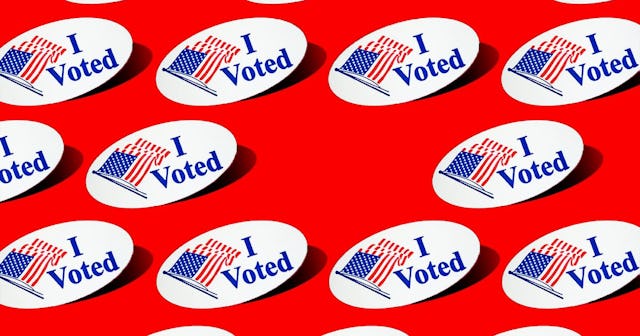Why Do Criminals Deserve To Vote, Anyway?

I understand the impulse not to allow people with criminal records to vote. It seems almost antithetical, morally unjust even, to allow someone who has proven themselves to make bad decisions in their own life to make decisions about how our government is run, which affects the lives of others. Haven’t they already proven themselves untrustworthy? Why would we trust a felon’s judgment about anything?
But let’s analyze for a moment what voting actually is. For most political races, there are typically only two serious candidates on the ballot, sometimes one or two more, who have any real chance of winning. Each of those candidates has been selected by democratic processes such as primary elections or via signature collection. What harm would a criminal actually inflict by choosing one candidate over another that any other citizen who cast the same vote has not also inflicted? To say a felon should have no right to vote is to suggest that the felon’s opinion of who should run things is in and of itself a criminal idea. It then stands to reason that anyone who casts the same vote as a felon must by definition also be a criminal. See how illogical this reasoning actually is?
Maybe we should consider that any human being who actively takes steps to participate in the democratic process likely wishes to participate in that process for the same reasons as anyone else — because they wish to preserve and advance their own welfare as well as the prosperity of their community as a whole. Maybe we should consider that a felon who has served their time according to the law has the best chance of assimilating if the community to which he has returned offers him the same rights as everyone else.
Not only that, but can we just take a look around and note the kinds of idiotic decisions that non-criminals have been making lately? Have you been on Facebook and seen the conspiracy theories circulating? Have you seen the anti-masker’s arguments? Did you see that Fort Myers man who screamed “I feel threatened!” at the elderly woman in Costco? If we’re going to curtail anyone’s right to vote, I propose we start first with the asshats who share conspiracy theories on Facebook and scream at fellow shoppers in Costco. I trust the ability of most “criminals” to thoughtfully select a candidate more than these complete assholes.
How do we decide who we label a criminal?
Hill Street Studios/Getty
But let’s now set aside these valid reasons why criminals should be allowed to make hiring decisions for public servants, and let’s instead turn our attention to the makeup of our imprisoned population. Incarceration rates are heavily skewed to punish Black folks far more harshly than whites. Black people comprise only 13% of the general population, but they comprise nearly 60% of the incarcerated population, compared to white people who comprise 76% of the population but under 19% of the incarcerated population.
But but but, says the racist, maybe Black people shouldn’t commit so much crime!
Except, law enforcement and the criminal justice system are racist AF. Cops pull Black people over more often than white people, and when Black folks are accused of something, they’re more likely to get convicted than white people, and when they’re convicted of something, they’re more likely to receive a harsher sentence than a white person who had committed exactly the same crime.
For example, only 5% of illicit drug users are Black, and yet they represent 29% of arrests and 33% of incarcerations for drug offenses. For all types of crime, Black men receive sentences on average 19.1% longer than white males who have committed the same crime, even when history of violence is taken into account.
Blocking felon voting rights is 100% a political move.
Rest assured, when politicians (read: republicans) try to block voting rights for felons, they absolutely are not doing so for moral reasons. They have calculated that if felons vote, they will likely vote democrat.
In Florida, for example, Amendment 4 was overwhelmingly passed in 2018, allowing for felons to vote as long as they had completed all terms of their sentence. (Prior to this, felons in Florida had been banned from voting for life.) Republican governor Ron Desantis, recognizing the political precariousness Amendment 4 represented for himself and his colleagues, immediately signed a bill that defined “all terms” as meaning that all fines, fees, and restitution relating to a case must be paid in their entirety before a felon could exercise their voting rights. This despite the state admitting they don’t even have a method by which to track said fines and therefore cannot provide data as to what any given felon might owe. Experts estimated that this would block 87% of the felon population from voting. A federal judge ruled the measure unconstitutional, but the appeals process drags on even through today.
Are you starting to see how the system is set up to keep Black people out of the voting booth? So, it would be one thing to say that we don’t trust criminals and therefore should not afford them the right to vote. But, at the moment, because of America’s racist-ass system, what we’re really saying is, “We don’t want Black people to vote.” Let’s just keep it real, please.
Until we completely rid law enforcement and the criminal justice of racial bias, we don’t get to claim any kind of moral high ground with regards to criminality and voting. After all, if we’re holding up a system that unfairly incarcerates Blacks compared to their white counterparts, who here is really committing the crime?
This article was originally published on